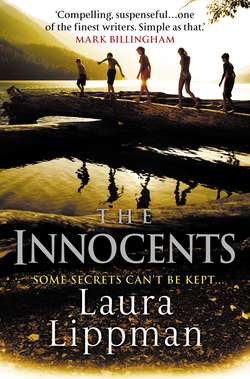Читать книгу The Innocents - Laura Lippman - Страница 18
Autumn 1978–Winter 1979 CHAPTER TEN
ОглавлениеWe would have quickly grown tired of Chicken George except for one thing: he turned out to be mysterious. At least, that’s the way we saw it: He cultivated mystery, excited our curiosity. He was vague in the face of all questions, no matter how benign. How he had come to live in this house, when he had learned the guitar. How old he was. (Go-Go asked the last one. The rest of us knew better than to ask a grown-up’s age.) He avoided all questions and had few of his own, other than: “What did you bring me?” Still, it would have been better, harsh as it sounds, if we had stopped visiting him. It’s nice to think so, at any rate, because if we had tired of him, then things might have gone differently. And this is a story about things we wished had gone differently. Aren’t all stories?
Anyway, Chicken George had a way of disappearing. The first time, it was November, and we assumed it was weather-related. The wind had started to kick up, the pleasant tang of October had given way to a steady dank cold. Weather was more reliable then. This is not memory, but hard scientific fact. The weather of our childhood was part of an unusually temperate time on our planet, with fewer extreme variations. The things we have seen in recent years—the events of just the past year, with almost a hundred inches of snow in Baltimore and floods, not to mention volcanoes and earthquakes, birds falling from the skies—might well be connected to climate change, the wear and tear that humans wreak on a planet. We are not here to argue science. But weather was more predictable then, and when it turned cold, it stayed cold, so cold the pond froze for days, even weeks of ice-skating. It made sense that Chicken George would disappear during such weather. Not that one could tell, by the look of the cabin, that anything had changed. It was as we had first found it, complete with the chickens in the yard and clothing on the line. Go-Go was the one who thought to look for his guitar. That was missing, too.
“What about the chickens?” Gwen asked.
“What about them?” countered Tim.
“They’ll die out here. Animals will eat them.”
“So what? Chicken George was going to eat them, too. What’s the difference?”
“But Chicken George would have been more humane.”
Tim laughed. “You think so, Gwen? You think that snapping an animal’s neck is that much more humane than being snatched up in the jaws of a dog or a fox? Dead is dead.”
Go-Go liked that. “Dead is dead,” he raved. “Dead is dead!” He began throwing rocks at the chickens, then running among them, scattering them. But those chickens were tough. They spread out, giving Go-Go room, but they didn’t disperse.
Mickey and Sean had been quiet throughout, systematically looking through George’s things, trying to find clues. Mickey, although uninterested in school, had a talent for deduction. Gwen’s father, noticing how she examined facts and reached conclusions, had tried to interest her in the works of Arthur Conan Doyle, but she had no patience for Sherlock Holmes. Or Nancy Drew, or Trixie Belden, or books in general. She was disdainful of people who read but not in a defensive, anti-intellectual way. She thought reading was a ruse, a completely wasteful activity. If Mickey were the kind of person who trafficked in similes or metaphors, she might have compared reading to rules such as not swimming an hour after a meal, or never going out of the house with wet hair. Instead, she just didn’t read and was baffled by those who did. She didn’t like television much, either. Mickey plain didn’t like sitting still. She wanted to make things happen. She wanted to see if she could jump from mossy stone to mossy stone without falling. She wanted to poke snapping turtles with sticks, and if one snapped, well, that was the point. She would have liked to live like Chicken George—in a cabin, accountable only to herself, although preferably with indoor plumbing.
